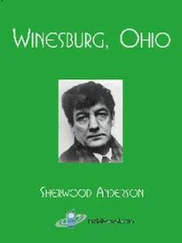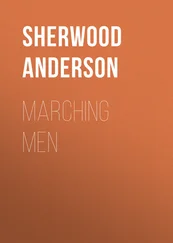Sherwood Anderson - Poor White
Здесь есть возможность читать онлайн «Sherwood Anderson - Poor White» — ознакомительный отрывок электронной книги совершенно бесплатно, а после прочтения отрывка купить полную версию. В некоторых случаях можно слушать аудио, скачать через торрент в формате fb2 и присутствует краткое содержание. Жанр: Альтернативная история, literature_20, foreign_antique, foreign_prose, Исторические приключения, на английском языке. Описание произведения, (предисловие) а так же отзывы посетителей доступны на портале библиотеки ЛибКат.
- Название:Poor White
- Автор:
- Жанр:
- Год:неизвестен
- ISBN:нет данных
- Рейтинг книги:3 / 5. Голосов: 1
-
Избранное:Добавить в избранное
- Отзывы:
-
Ваша оценка:
- 60
- 1
- 2
- 3
- 4
- 5
Poor White: краткое содержание, описание и аннотация
Предлагаем к чтению аннотацию, описание, краткое содержание или предисловие (зависит от того, что написал сам автор книги «Poor White»). Если вы не нашли необходимую информацию о книге — напишите в комментариях, мы постараемся отыскать её.
Poor White — читать онлайн ознакомительный отрывок
Ниже представлен текст книги, разбитый по страницам. Система сохранения места последней прочитанной страницы, позволяет с удобством читать онлайн бесплатно книгу «Poor White», без необходимости каждый раз заново искать на чём Вы остановились. Поставьте закладку, и сможете в любой момент перейти на страницу, на которой закончили чтение.
Интервал:
Закладка:
The money earned in this way Hugh for a time gave to his father, and when the man had become stupid with drink he grew quarrelsome and demanded that the boy return to live with him. Hugh had not the spirit to refuse and sometimes did not want to refuse. When neither the station master nor his wife was about he slipped away and went with his father to sit for a half day with his back against the wall of the fishing shack, his soul at peace. In the sunlight he sat and stretched forth his long legs. His small sleepy eyes stared out over the river. A delicious feeling crept over him and for the moment he thought of himself as completely happy and made up his mind that he did not want to return again to the railroad station and to the woman who was so determined to arouse him and make of him a man of her own people.
Hugh looked at his father asleep and snoring in the long grass on the river bank. An odd feeling of disloyalty crept over him and he became uncomfortable. The man’s mouth was open and he snored lustily. From his greasy and threadbare clothing arose the smell of fish. Flies gathered in swarms and alighted on his face. Disgust took possession of Hugh. A flickering but ever recurring light came into his eyes. With all the strength of his awakening soul he struggled against the desire to give way to the inclination to stretch himself out beside the man and sleep. The words of the New England woman, who was, he knew, striving to lift him out of slothfulness and ugliness into some brighter and better way of life, echoed dimly in his mind. When he arose and went back along the street to the station master’s house and when the woman there looked at him reproachfully and muttered words about the poor white trash of the town, he was ashamed and looked at the floor.
Hugh began to hate his own father and his own people. He connected the man who had bred him with the dreaded inclination toward sloth in himself. When the farmhand came to the station and demanded the money he had earned by carrying trunks, he turned away and went across a dusty road to the Shepard’s house. After a year or two he paid no more attention to the dissolute farmhand who came occasionally to the station to mutter and swear at him; and, when he had earned a little money, gave it to the woman to keep for him. “Well,” he said, speaking slowly and with the hesitating drawl characteristic of his people, “if you give me time I’ll learn. I want to be what you want me to be. If you stick to me I’ll try to make a man of myself.”
Hugh McVey lived in the Missouri town under the tutelage of Sarah Shepard until he was nineteen years old. Then the station master gave up railroading and went back to Michigan. Sarah Shepard’s father had died after having cleared one hundred and twenty acres of the cut-over timber land and it had been left to her. The dream that had for years lurked in the back of the little woman’s mind and in which she saw bald-headed, good-natured Henry Shepard become a power in the railroad world had begun to fade. In newspapers and magazines she read constantly of other men who, starting from a humble position in the railroad service, soon became rich and powerful, but nothing of the kind seemed likely to happen to her husband. Under her watchful eye he did his work well and carefully but nothing came of it. Officials of the railroad sometimes passed through the town riding in private cars hitched to the end of one of the through trains, but the trains did not stop and the officials did not alight and, calling Henry out of the station, reward his faithfulness by piling new responsibilities upon him, as railroad officials did in such cases in the stories she read. When her father died and she saw a chance to again turn her face eastward and to live again among her own people, she told her husband to resign his position with the air of one accepting an undeserved defeat. The station master managed to get Hugh appointed in his place, and the two people went away one gray morning in October, leaving the tall ungainly young man in charge of affairs. He had books to keep, freight waybills to make out, messages to receive, dozens of definite things to do. Early in the morning before the train that was to take her away, came to the station, Sarah Shepard called the young man to her and repeated the instructions she had so often given her husband. “Do everything neatly and carefully,” she said. “Show yourself worthy of the trust that has been given you.”
The New England woman wanted to assure the boy, as she had so often assured her husband, that if he would but work hard and faithfully promotion would inevitably come; but in the face of the fact that Henry Shepard had for years done without criticism the work Hugh was to do and had received neither praise nor blame from those above him, she found it impossible to say the words that arose to her lips. The woman and the son of the people among whom she had lived for five years and had so often condemned, stood beside each other in embarrassed silence. Stripped of her assurance as to the purpose of life and unable to repeat her accustomed formula, Sarah Shepard had nothing to say. Hugh’s tall figure, leaning against the post that supported the roof of the front porch of the little house where she had taught him his lessons day after day, seemed to her suddenly old and she thought his long solemn face suggested a wisdom older and more mature than her own. An odd revulsion of feeling swept over her. For the moment she began to doubt the advisability of trying to be smart and to get on in life. If Hugh had been somewhat smaller of frame so that her mind could have taken hold of the fact of his youth and immaturity, she would no doubt have taken him into her arms and said words regarding her doubts. Instead she also became silent and the minutes slipped away as the two people stood before each other and stared at the floor of the porch. When the train on which she was to leave blew a warning whistle, and Henry Shepard called to her from the station platform, she put a hand on the lapel of Hugh’s coat and drawing his face down, for the first time kissed him on the cheek. Tears came into her eyes and into the eyes of the young man. When he stepped across the porch to get her bag Hugh stumbled awkwardly against a chair. “Well, you do the best you can here,” Sarah Shepard said quickly and then out of long habit and half unconsciously did repeat her formula. “Do little things well and big opportunities are bound to come,” she declared as she walked briskly along beside Hugh across the narrow road and to the station and the train that was to bear her away.
After the departure of Sarah and Henry Shepard Hugh continued to struggle with his inclination to give way to dreams. It seemed to him a struggle it was necessary to win in order that he might show his respect and appreciation of the woman who had spent so many long hours laboring with him. Although, under her tutelage, he had received a better education than any other young man of the river town, he had lost none of his physical desire to sit in the sun and do nothing. When he worked, every task had to be consciously carried on from minute to minute. After the woman left, there were days when he sat in the chair in the telegraph office and fought a desperate battle with himself. A queer determined light shone in his small gray eyes. He arose from the chair and walked up and down the station platform. Each time as he lifted one of his long feet and set it slowly down a special little effort had to be made. To move about at all was a painful performance, something he did not want to do. All physical acts were to him dull but necessary parts of his training for a vague and glorious future that was to come to him some day in a brighter and more beautiful land that lay in the direction thought of rather indefinitely as the East. “If I do not move and keep moving I’ll become like father, like all of the people about here,” Hugh said to himself. He thought of the man who had bred him and whom he occasionally saw drifting aimlessly along Main Street or sleeping away a drunken stupor on the river bank. He was disgusted with him and had come to share the opinion the station master’s wife had always held concerning the people of the Missouri village. “They’re a lot of miserable lazy louts,” she had declared a thousand times, and Hugh, agreed with her, but sometimes wondered if in the end he might not also become a lazy lout. That possibility he knew was in him and for the sake of the woman as well as for his own sake he was determined it should not be so.
Читать дальшеИнтервал:
Закладка:
Похожие книги на «Poor White»
Представляем Вашему вниманию похожие книги на «Poor White» списком для выбора. Мы отобрали схожую по названию и смыслу литературу в надежде предоставить читателям больше вариантов отыскать новые, интересные, ещё непрочитанные произведения.
Обсуждение, отзывы о книге «Poor White» и просто собственные мнения читателей. Оставьте ваши комментарии, напишите, что Вы думаете о произведении, его смысле или главных героях. Укажите что конкретно понравилось, а что нет, и почему Вы так считаете.












